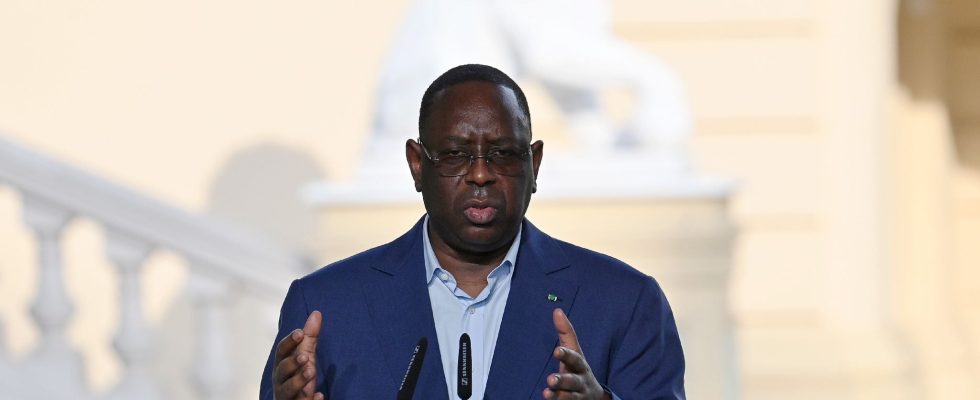Senegal plunges into the unknown. On Saturday February 3, President Macky Sall announced, a few hours before the official opening of the campaign, to repeal the decree setting the presidential election for February 25. His decision caused great concern both within the country and abroad, Senegal being rather renowned as an island of stability in Africa.
Several opposition candidates announced this Sunday, February 4 to the press and on social networks that they will ignore President Sall’s decision and maintain, as planned, the launch of their electoral campaign. “We systematically reject the decree (postponing the presidential election). We are meeting all Senegalese this Sunday for a march” in Dakar, declared Cheikh Tidiane Youm, a spokesperson for the opposition camp on private radio RFM.
“We met and agreed to gather from 3 p.m. to start our (electoral) campaign collectively,” declared Habib Sy, one of the 20 candidates who were to compete in the postponed election, on the same radio. “All the living forces of the nation must organize, act and obtain the restoration of the Republican calendar,” wrote the intellectual Felwine Sarr in a column. Senegalese opponent Khalifa Sall, one of the main presidential candidates, called on the entire country on Saturday to “stand up” against the postponement of the vote.
“Democratic regression”
Former Prime Minister Aminata Touré denounced on social networks an “unprecedented democratic regression” and urged “democrats and citizens (to) mobilize to defend our democratic achievements”. Reactions around the world also poured in. France called on Senegal this Sunday to remove the “uncertainties” created by the postponement so that the vote can be held “as soon as possible”. The day before, the United States, “deeply concerned” by the announcement of the postponement, urged “all participants in the Senegalese electoral process to engage peacefully in the important effort aimed at quickly setting a new date and the conditions for ‘a free and fair election’. The Economic Community of West African States (ECOWAS) also expressed its “concern” and asked the authorities in a press release to work to quickly set a new date.
This is the first time since 1963 that a presidential election by direct universal suffrage has been postponed in Senegal. Many reactions highlighted the practice of democracy and alternation. Senegal has never experienced a coup d’état, a rarity on the continent, although there have been several in recent years in West Africa. President Sall invoked the conflict which broke out between the Constitutional Council and the National Assembly after the final validation by the court of 20 candidacies and the elimination of several dozen others.
“National Dialogue”
At the initiative of Karim Wade, a failed candidate who called into question the integrity of two constitutional judges and demanded the postponement of the election, the Assembly approved the creation of a commission of inquiry into the conditions of validation of applications. Against all expectations, the deputies from the presidential camp supported the approach. It provoked a lively dispute over the separation of powers, but also fueled suspicion of a government plan to postpone the presidential election and avoid defeat. The candidate of the presidential camp, Prime Minister Amadou Ba, is contested within his own ranks and faces dissidents.
On the contrary, the anti-system Bassirou Diomaye Faye, whose candidacy was validated by the Constitutional Council although he has been imprisoned since 2023, has established himself in recent weeks as a credible candidate for victory, a nightmare scenario for the presidential camp. Senegal cannot “afford a new crisis” after deadly unrest in March 2021 and June 2023, said President Sall, announcing “a national dialogue” for “a free, transparent and inclusive election” and reiterating his commitment not to not be a candidate.
According to the electoral code, a decree setting the date of a new presidential election must be published no later than 80 days before the election, which would lead to the end of April in the best case scenario, an almost impossible scenario. President Sall therefore risks remaining in his post beyond the end of his mandate on April 2.
